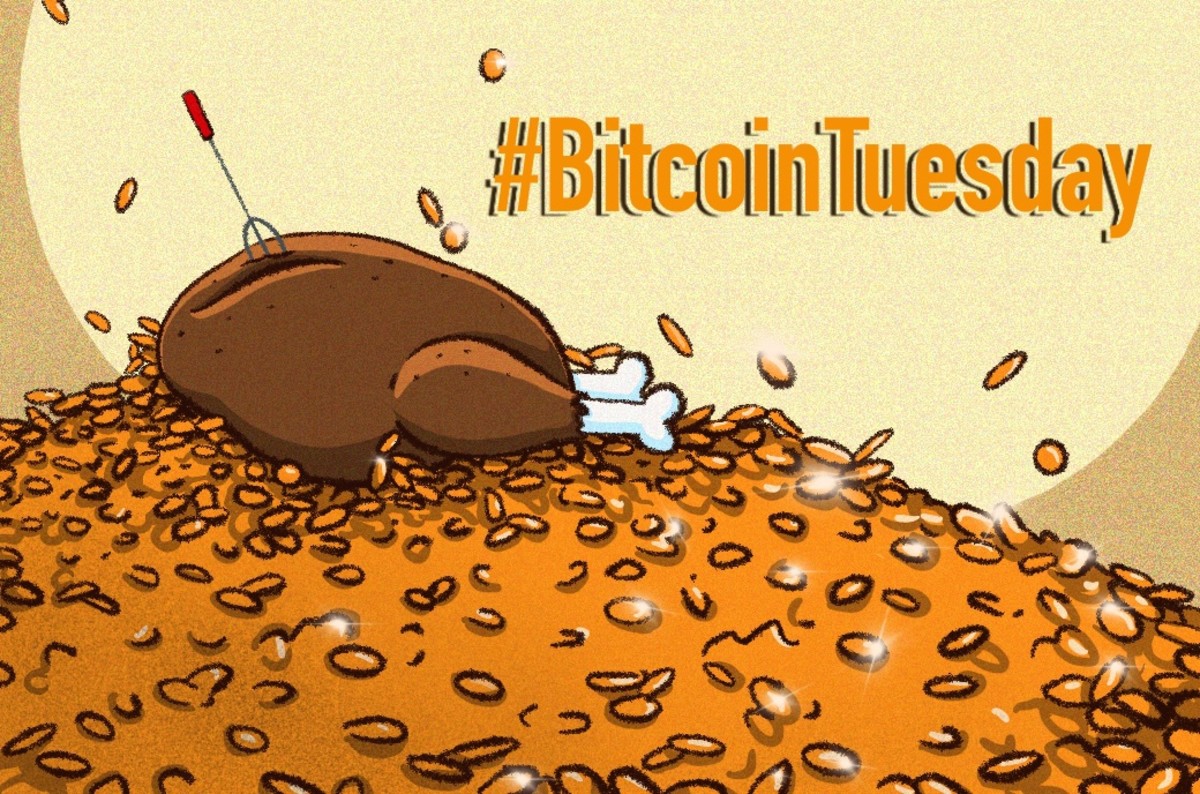
A bitcoin payment processor for nonprofits and charities wants hodlers to focus on #GivingBitcoin during Giving Tuesday.
Black Friday’s history is complicated. The U.S. tradition of shopping on the day after Thanksgiving dates back to the early 20th century, though the term wasn’t coined until the 1960s. Since then, the event has unravelled into a multiday scramble for door-busting deals; for some, it now begins on the day of Thanksgiving itself and has extended its influence into such offshoot events like Cyber Monday, a day of digital shopping discounts.
It has also given rise to Giving Tuesday (#GivingTuesday). As its name implies, #GivingTuesday is meant to encourage philanthropy and charity in response to the consumerism that has come to define the days after Thanksgiving.
And as sats-back programs like Fold and Lolli embrace the post-Thanksgiving traditions with their own deals for Black Friday and Cyber Monday, one organization wants to put Bitcoin at the forefront of #GivingTuesday.
Turning Giving Tuesday Into Giving #BitcoinTuesday
The Giving Block, a nonprofit that provides bitcoin payment-processing solutions for charities and other nonprofits, is launching perhaps the widest-reaching bitcoin charity campaign for this year’s Giving Tuesday.
Bitcoin Tuesday (#BitcoinTuesday), as it’s called, is calling all hodlers to fork over some of their sats in the name of goodwill and philanthropy.
“We have two #BitcoinTuesday goals — one donation goal, one adoption goal,” The Giving Block co-founder Patrick Duffy told Bitcoin Magazine. “The donation goal — raise $1,000,000 in cryptocurrency for nonprofits. The adoption goal — get 1,000,000 people to see positive Bitcoin content. Imagine if campaigns like this happened every day. Think about how much easier it would be to talk about Bitcoin at the dinner table. That's why we're doing this.”
The Giving Block team believes that bitcoin donations have not gained as much traction for Giving Tuesday as one might expect (according to a 2019 report by Tech for Good, only 2 percent of global nongovernmental organizations and nonprofits accept bitcoin as a donation option, up by 1 percent from 2018).
This may be in part because of the learning curve that comes with using bitcoin. That’s why The Giving Block’s first hire was tasked with going from nonprofit to nonprofit to glean where the pain points were in accepting BTC donations and how it could convince board members to adopt a crypto-based donations solution.
For an oft-malign digital currency sometimes associated in pop culture with the dark underpinnings of the web, bitcoin actually has a rich history of philanthropy. Examples include the 5,057 BTC Pineapple Fund, which Duffy said “[changed his life] and [inspired] the creation of the company,” and projects like BitGive and Helperbit.
Building Philanthropic Momentum
Duffy finds that bitcoin donations should be a no-brainer given that, like stocks, these donations are exempt from capital gains tax. This could be enough to incentivize donations, he believes, along with what he calls the “high-five” effect: where bitcoiners “still see nonprofits accepting bitcoin as abnormal. So they'll send some crypto as a 'high five' for joining the crypto community.”
The Giving Block features roughly 100 different nonprofits for donating, including The Human Rights Foundation, the Mona Foundation, No Kid Hungry, Save the Children and the Tor Foundation. When you donate through the platform, the organization converts your bitcoin donation into cash for the recipient and provides you with a tax receipt. In addition to bitcoin, it also takes ether, litecoin and zcash, among other altcoins.
In hopes of boosting donations, The Giving Block wants to make sats-powered philanthropy go viral with the #GivingBitcoin hashtag. It’s already off to a good start; Rainn Wilson (best known for his role as Dwight in The Office) recently tweeted his support for the effort.
With a celebrity like Wilson behind the movement and a history of bitcoin-bolstered altruism, Duffy hopes that campaigns like this will turn hodlers into donors and spread adoption across the globe.
“It will be nonprofits that bring Bitcoin mainstream,” he said. “Their incentives all align with Bitcoin's unique properties. Transparency/traceability, cross border payments, micropayments/donations, stabilizing communities under unstable regimes issuing unstable fiat. Nonprofits are about to send Bitcoin adoption parabolic.”










